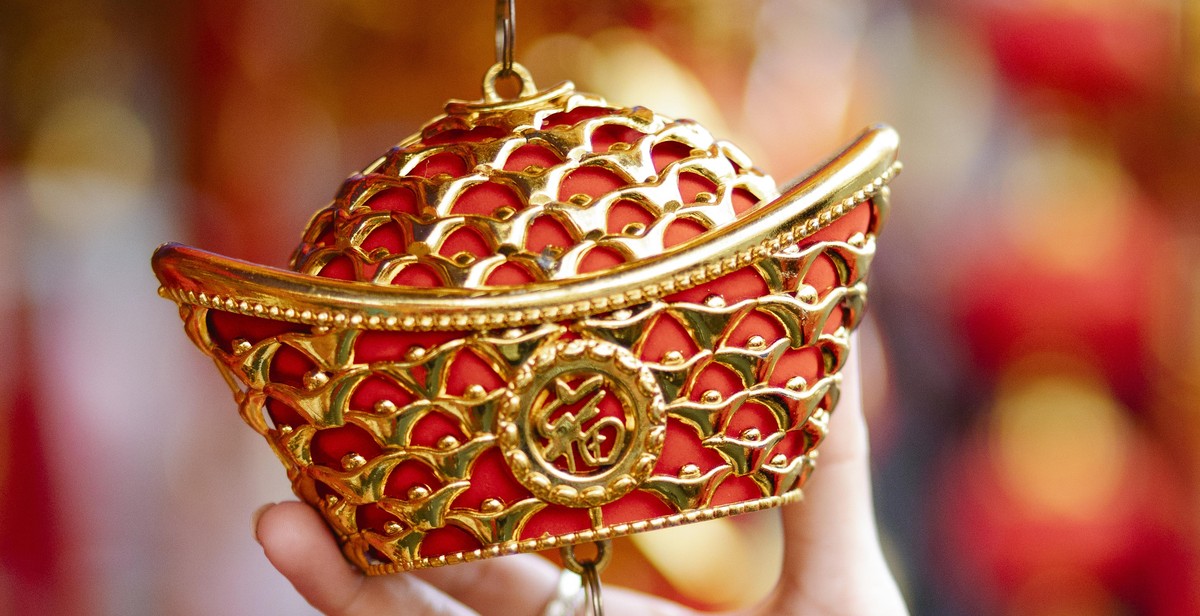How to Master the Art of Feng Shui in Your Home
If you want to create a peaceful and harmonious environment in your home, then you should consider the ancient Chinese art of Feng Shui. This practice involves arranging your living space to promote positive energy flow and balance the elements of nature. Feng Shui can help you create a more relaxing and inviting atmosphere, which can have a positive impact on your physical and mental well-being.
Mastering the art of Feng Shui may seem daunting, but with a little knowledge and effort, anyone can do it. In this article, we will guide you through the basics of Feng Shui and provide you with practical tips on how to apply it in your home.
What is Feng Shui?
Feng Shui is an ancient Chinese practice that dates back over 3,000 years. It is based on the idea that everything in the universe is made up of energy, or “chi,” and that this energy can be harnessed and manipulated to bring balance and harmony to our lives. In Feng Shui, the goal is to create a living space that promotes the free flow of energy, which can help to improve our health, wealth, and relationships.
The Basics of Feng Shui
At the heart of Feng Shui is the idea that our environment affects our well-being. By arranging our living space in a certain way, we can create a more positive and harmonious atmosphere. The basic principles of Feng Shui include:
- Creating balance and harmony between the elements of nature (water, wood, fire, earth, and metal)
- Clearing clutter and creating a clean and organized living space
- Positioning furniture and objects in a way that promotes positive energy flow
- Using color and light to enhance the energy in a room
What is Feng Shui?
Feng Shui is an ancient Chinese practice that involves arranging your living space to create a harmonious environment. The term “Feng Shui” translates to “wind-water” in English. This practice is based on the idea that the arrangement of objects and furniture in your home can affect the flow of energy, or “chi,” in your living space and, in turn, impact your well-being, happiness, and success.
The Basic Principles of Feng Shui
The basic principles of Feng Shui involve creating a balance of the five elements (wood, fire, earth, metal, and water) and ensuring that chi flows smoothly through your living space. This can be achieved by:
- Using natural materials and colors to create a calming atmosphere
- Positioning furniture and objects to allow for easy movement and flow
- Clearing clutter and organizing your space to create a sense of calm and order
- Bringing in natural light and fresh air to create a sense of vitality and energy
The Benefits of Feng Shui
Practicing Feng Shui in your home can have a range of benefits, including:
- Improved physical and mental well-being
- Increased energy and vitality
- Enhanced relationships and communication
- Greater success and prosperity
By understanding the basic principles of Feng Shui and applying them to your living space, you can create a harmonious environment that supports your well-being and success.

The Benefits of Feng Shui
Feng Shui is an ancient Chinese practice that aims to improve and enhance the energy flow in a space. Here are some of the benefits of incorporating Feng Shui principles in your home:
Improved Energy Flow
Good energy flow, or chi, is essential for a harmonious and balanced environment. By arranging furniture and decor in a specific way, Feng Shui can help to improve energy flow in your home. This can lead to a more peaceful and relaxing atmosphere.
Enhanced Mood and Productivity
Feng Shui can help to create a positive and uplifting environment, which can have a significant impact on your mood and productivity. By placing certain colors, plants, and decor in specific areas of your home, Feng Shui can help to stimulate creativity and boost energy levels.
Better Sleep Quality
Feng Shui can also help to promote better sleep quality. By creating a calming and peaceful environment in your bedroom, with the right colors, lighting, and placement of furniture, you can create a space that is conducive to restful and rejuvenating sleep.
Overall, incorporating Feng Shui principles in your home can have numerous benefits for your physical, emotional, and mental well-being. By improving energy flow, enhancing mood and productivity, and promoting better sleep quality, you can create a space that is not only beautiful but also supports your health and happiness.

The Basics of Feng Shui
Bagua Map
The Bagua Map is a tool used in Feng Shui to map out the energy of a space. The map is divided into nine sections, each corresponding to a different area of life, such as wealth, love, and health. By placing the Bagua Map over the floor plan of a home or room, you can identify which areas of your life may need attention and make adjustments accordingly.
The Five Elements
The Five Elements are the foundation of Feng Shui. They are wood, fire, earth, metal, and water. Each element has its own unique characteristics and associations, and they interact with each other in specific ways. By understanding the relationships between the elements, you can create a balanced and harmonious environment that supports your goals and intentions.
Yin and Yang
Yin and Yang are complementary forces that are essential to the practice of Feng Shui. Yin represents feminine energy, while Yang represents masculine energy. Together, they create a dynamic balance that is necessary for optimal well-being. In Feng Shui, it’s important to create a balance of Yin and Yang energy in your home or space. Too much of one or the other can lead to imbalance and disharmony.
| Key Concepts | Definitions |
|---|---|
| Bagua Map | A tool used to map out the energy of a space |
| The Five Elements | The foundation of Feng Shui: wood, fire, earth, metal, and water |
| Yin and Yang | Complementary forces that create a dynamic balance |

Applying Feng Shui in Your Home
Applying Feng Shui principles in your home can create a harmonious environment that promotes positive energy flow and enhances your overall well-being. Here are some tips on how to apply Feng Shui in your home:
Decluttering and Organizing
Decluttering and organizing your space is the first step in applying Feng Shui in your home. Get rid of anything that is broken, unused, or brings negative energy to your space. Keep your space tidy and organized to allow for positive energy to flow smoothly.
Arranging Furniture
Arranging furniture in a way that allows for the free flow of energy is essential in Feng Shui. Avoid blocking doorways or windows, and place furniture in a way that promotes conversation and relaxation. Use a Bagua map to help you arrange your furniture in a way that aligns with Feng Shui principles.
Choosing Colors and Materials
Choosing the right colors and materials can also promote positive energy flow in your space. In Feng Shui, colors have specific meanings and can affect your mood and energy levels. Use colors that align with your intentions for each room, and choose materials that are natural and sustainable.
| Colors | Meanings |
|---|---|
| Red | Passion, energy, and excitement |
| Yellow | Happiness, warmth, and optimism |
| Green | Growth, balance, and stability |
| Blue | Calmness, relaxation, and communication |
| Purple | Spirituality, creativity, and luxury |
By following these tips, you can apply Feng Shui in your home and create a space that promotes positive energy flow and enhances your overall well-being.

Feng Shui in Different Rooms
Living Room
The living room is often the central gathering place in a home, so it’s important to create a welcoming and balanced space. Start by positioning the furniture in a way that promotes conversation and easy movement throughout the room. Avoid placing furniture directly in front of doors or windows. Use warm colors and soft textures to create a cozy atmosphere. Incorporate natural elements, such as plants or a water feature, to bring in positive energy. Hang artwork or photos that evoke happy memories or positive emotions.
Bedroom
The bedroom is a place of rest and relaxation, so it’s important to create a calming and peaceful environment. Choose a soothing color scheme, such as shades of blue or green. Position the bed in a way that allows for easy access from both sides. Avoid placing the bed directly in line with the door. Use soft lighting and avoid harsh overhead lighting. Keep the room clutter-free and avoid storing items under the bed. Incorporate elements of nature, such as fresh flowers or a Himalayan salt lamp, to promote relaxation.
Kitchen
The kitchen is the heart of the home, so it’s important to create a space that promotes health and abundance. Start by keeping the kitchen clean and organized. Use bright colors and natural materials, such as wood and stone, to create a warm and inviting atmosphere. Avoid clutter on countertops and keep appliances out of sight when not in use. Incorporate elements of fire, such as a red backsplash or candles, to promote energy and passion. Place fresh fruit or a bowl of nuts on the counter to promote abundance.
Bathroom
The bathroom is a place of cleansing and rejuvenation, so it’s important to create a space that promotes relaxation and cleanliness. Keep the bathroom clean and clutter-free. Use soft lighting and avoid harsh overhead lighting. Choose a soothing color scheme, such as shades of blue or green. Incorporate natural elements, such as plants or a bamboo mat, to promote relaxation. Keep the toilet seat and lid closed when not in use to prevent negative energy from escaping.

Enhancing Your Feng Shui Practice
Now that you have a basic understanding of Feng Shui principles, you can take your practice to the next level by incorporating plants and nature, using crystals and mirrors, and adding art and decor to your space.
Incorporating Plants and Nature
Plants and nature have a powerful impact on the energy of a space. They can purify the air, reduce stress, and create a sense of calm. When choosing plants for your home, look for ones that are easy to care for and that fit the style and aesthetic of your space. Some popular Feng Shui plants include the money tree, bamboo, and peace lily.
Using Crystals and Mirrors
Crystals and mirrors are powerful tools in Feng Shui. Crystals can be used to enhance positive energy and promote healing, while mirrors can be used to reflect light and create a sense of spaciousness. When using crystals, choose ones that resonate with you and place them in areas where you want to promote positive energy. When using mirrors, be mindful of what they are reflecting and avoid placing them in areas where they can reflect negative energy.
Adding Art and Decor
Art and decor are a great way to enhance the energy of your space and reflect your personal style. When choosing art and decor, look for pieces that make you feel happy and inspired. Avoid cluttering your space with too many decorative items, as this can create a sense of chaos and disrupt the flow of energy. Instead, choose a few key pieces that bring you joy and incorporate them into your space.
Conclusion
Mastering the art of Feng Shui in your home can bring about a sense of balance and harmony that will positively impact your life. By following the principles of Feng Shui, you can create a space that supports your physical, emotional, and spiritual well-being.
Key Takeaways
- Declutter and organize your space to promote positive energy flow.
- Use the Bagua map to identify areas of your home that correspond to different aspects of your life.
- Choose colors, materials, and decor that align with your goals and intentions.
- Consider the placement of furniture and objects to promote balance and harmony.
- Regularly cleanse and refresh your space to maintain positive energy.
Final Thoughts
Mastering the art of Feng Shui takes time and practice, but the benefits are well worth the effort. By creating a space that promotes balance and harmony, you can enhance your overall well-being and attract positive energy into your life. Remember, Feng Shui is not just about decorating your home, it’s about creating a space that supports your goals and intentions. So take the time to reflect on what you want to achieve and use the principles of Feng Shui to create a home that supports your journey.
